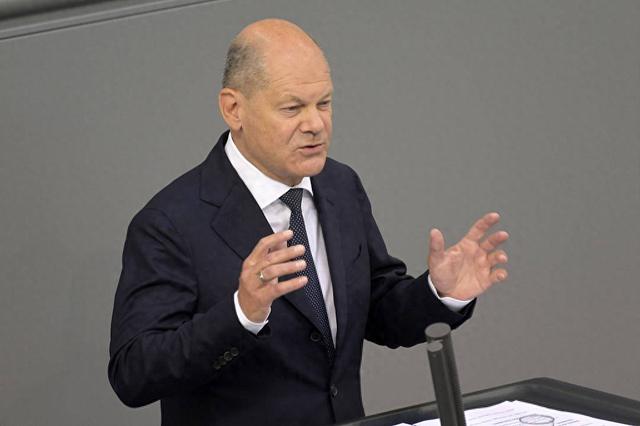
According to a report by Caixin Global on May 27, against the backdrop of tense trade relations between Europe and the United States, German Chancellor Merz recently sent a strong signal: If trade conflicts with the Trump administration escalate further, the European Union may take retaliatory measures against US tech companies. This statement has quickly drawn widespread attention from the international community and added more uncertainty to the already highly charged trade negotiations between Europe and the United States.
When elaborating on his stance, Merz showed a contradictory yet firm attitude. He clearly expressed his hope to reduce tariffs through dialogue and actively ease tensions with the White House to prevent the trade conflict from worsening, as trade wars would cause significant damage to the economies of both sides. However, he also emphasized that the EU must firmly safeguard its own interests. Data indicates that there is a significant imbalance in the trade structure between Europe and the United States. According to data from the official EU website, in 2023, the EU had a goods trade surplus of 156.6 billion euros with the United States. However, in terms of services trade, the EU's trade deficit with the US reached a staggering 108.6 billion euros. This disparity in the trade pattern has become a crucial factor in the EU's trade negotiations.
"Currently, we have provided substantial protection to US tech companies in terms of taxation and other aspects, but this situation can change. I don't want the conflict to escalate; instead, I hope we can solve the problem together," said Merz. These words not only reveal the EU's current lenient attitude towards US tech companies but also imply that this preferential treatment will cease if the situation gets out of control. In fact, the current trade negotiations between the EU and the United States are at a highly delicate moment. Last week, Trump suddenly threatened to impose a 50% tariff on goods imported from the EU starting June 1st. This move instantly ignited the fuse of trade disputes between Europe and the United States. However, subsequently, Trump had a phone conversation with European Commission President von der Leyen, and the two sides temporarily reached a compromise, postponing the implementation of the tariffs until July 9th, thus buying more time for the negotiations.
During this incident, Merz firmly stood in line with the unified stance of the EU. He publicly expressed full support for von der Leyen's position and emphasized that Germany would not reach a private agreement with the US side bypassing the EU. In his view, trade affairs concern the interests of the entire EU and must be handled by the EU as a whole. Although he stressed, "We should not react rashly and impulsively. In our opinion, imposing tariffs is not beneficial to us," he also made it clear that if the necessary moment arrives, the EU will take decisive action.
Currently, the EU has made thorough preparations for countermeasures. In response to Trump's earlier suspension of metal tariffs, the EU is ready to impose tariffs on US goods worth 21 billion euros (approximately 23.9 billion US dollars). If the negotiations break down, these measures are likely to be implemented promptly. In addition, the EU has also formulated an even more extensive additional tariff list covering US products worth up to 95 billion euros, aiming to respond to the US's "reciprocal taxation" and auto tariff policies. From this list, it can be seen that the potential retaliatory measures will cover a wide range of fields, including representative industrial goods such as Boeing aircraft, American-made cars, and bourbon whiskey. These goods are not only important pillars of the US economy but also hold significant positions in the global market. Once the EU's retaliatory measures are implemented, they will deal a heavy blow to the relevant US industries.
The German Chancellor's statement not only reflects Germany's stance in the trade conflict between Europe and the United States but also mirrors the EU's overall strategic considerations in the face of US trade pressure. By making a tough statement and thorough preparations, the EU aims to convey its determination to firmly safeguard its interests to the United States and hopes to prompt the US to show more sincerity and flexibility in trade negotiations. However, the future direction of trade relations between Europe and the United States remains highly uncertain. The international community is closely monitoring the subsequent negotiation progress between the two sides. The final outcome of this trade game will not only profoundly impact the economic development of Europe and the United States but also have far-reaching implications for the global trade pattern.

On January 4th local time, Trump warned India that if it does not limit its purchase of Russian oil, the United States will continue to raise tariffs on Indian products. Trump's latest warning sent shockwaves through the Indian financial market in just one day.
On January 4th local time, Trump warned India that if it do…
In October 2025, the US trade deficit narrowed unexpectedly…
According to the British media CoinJournal, recently, due t…
In January 2026, US President Trump once again set his sigh…
Europe is facing a crucial strategic choice: In the face of…
On New Year's Day 2026, BMW China announced a "systematic v…